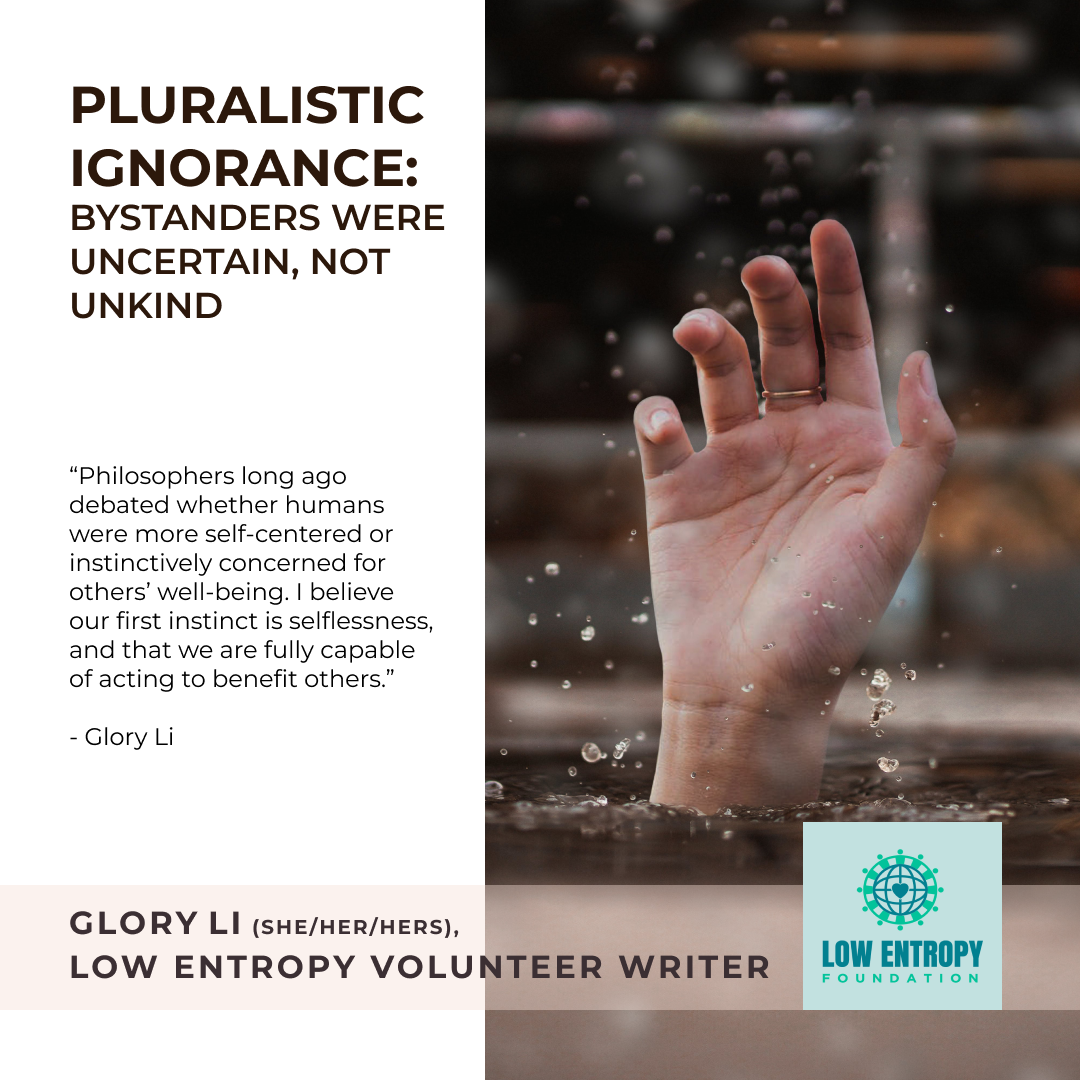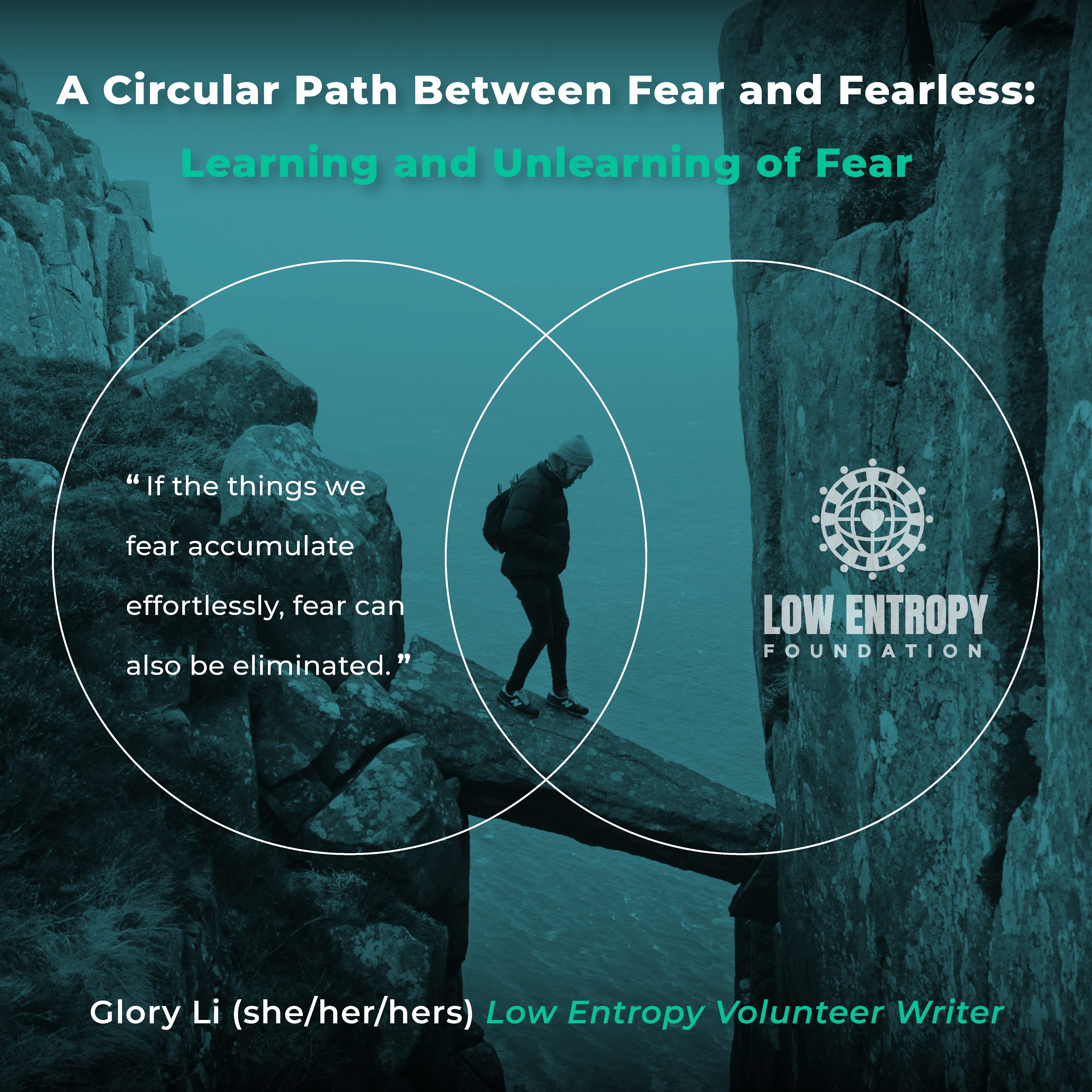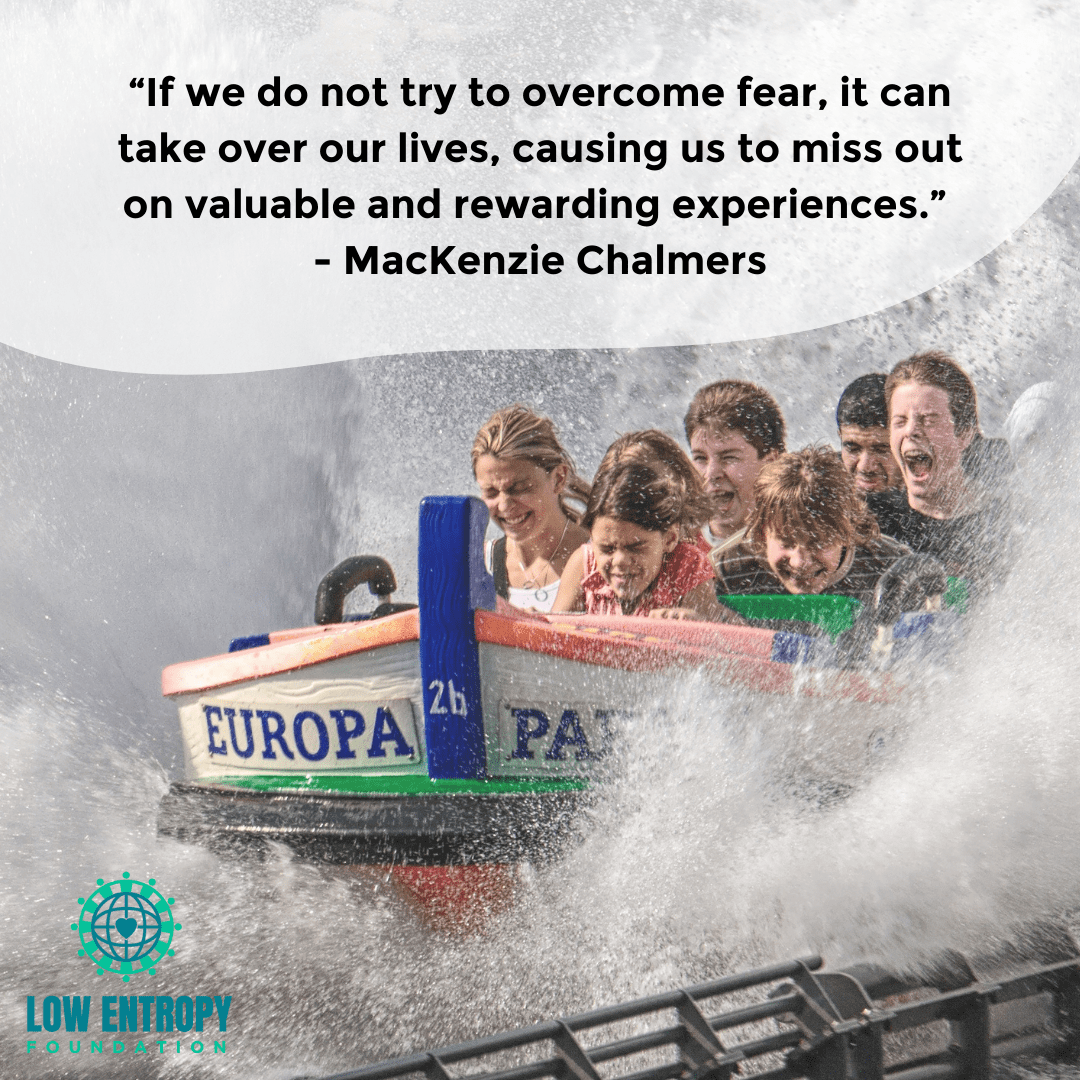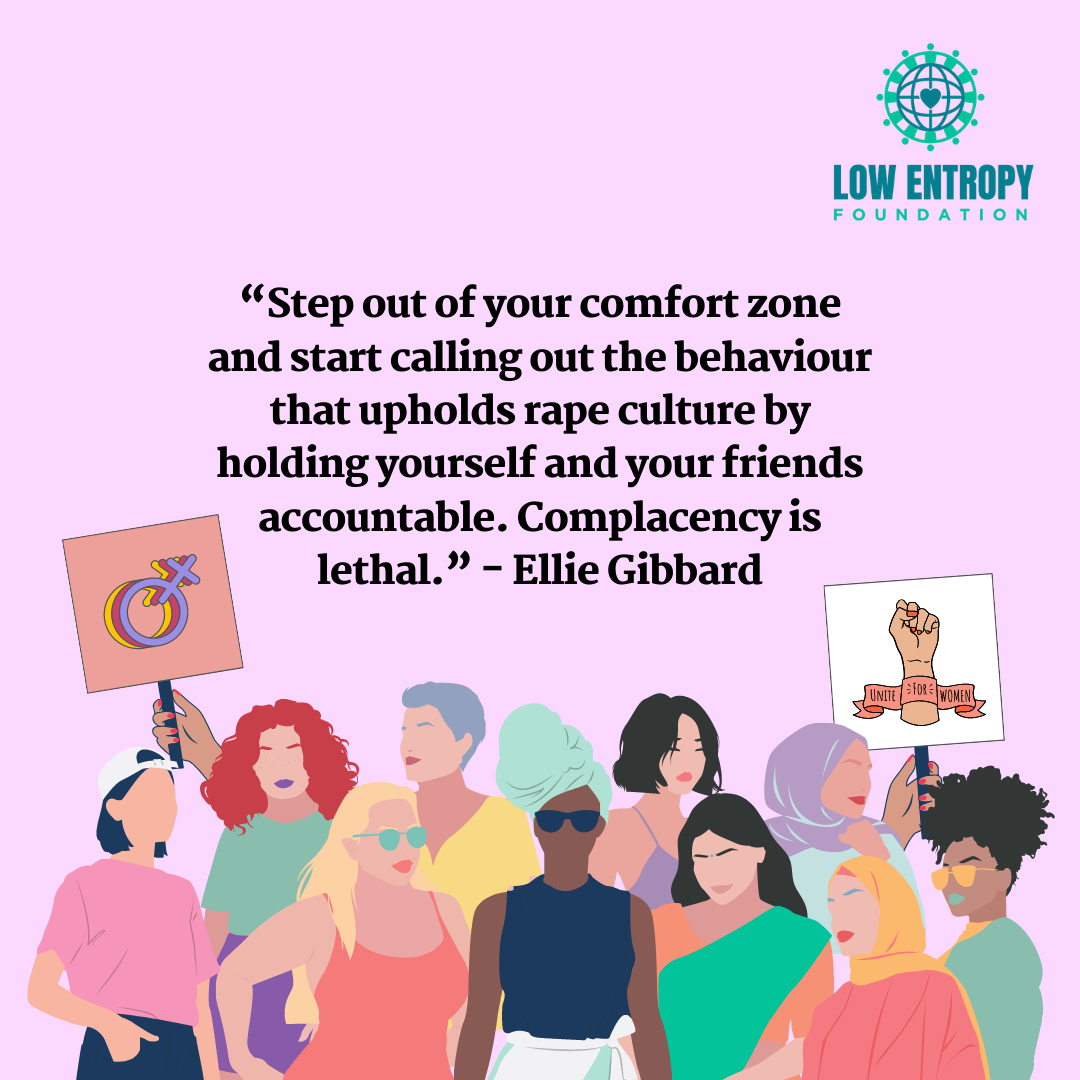Pluralistic Ignorance: Bystanders Were Uncertain, Not Unkind
January 27, 2024

Glory Li (she/her/hers), Low Entropy Volunteer Writer
“Human beings are basically good, kind, and compassionate, but it takes hard digging to uncover that buried jewel.” —Charlotte Joko Beck
Imagine a scream suddenly ripping across the transiently calm, pitch-black sky as your eyes instantly flutter open in bewilderment and mild infuriation. Who would make such a disturbing sound at 2:30 in the morning? Another ear-piercing, guttural shriek eliminates your faintest urge to sleep as you sit upright in a swift movement. As you crouch beside the windowsill, the flimsy crevice of your window lets in an undeniably anguished exclamation, pleading, “Help, I need help!”
What will you do? Will you venture into the darkness in your pyjamas and scrutinize the proximate scrimmage with your eyes the size of globes? Probably not. It would feel like a much safer, more rational and conventional decision to stay in the apartment, pretending to know nothing.
And that’s exactly what happened to Catherine “Kitty” Genovese around 60 years ago. Even though it’s highly likely that the initial news report exaggerated the number of witnesses, there was ample evidence to illustrate people’s apathy when Genovese was murdered and robbed in the middle of a residential street with an alleged 38 neighbours hearing and seeing the distraught commotion without showing any intention to offer meaningful support.
The case of Genovese became the model of bystander apathy, which implied that humans were fundamentally selfish, pathetic and ignorant when it came to standing up against violence and other intimidating forces. Many hereditary and environmental reasons contribute to individuals deciding whether to remain inactive or not, and will differ depending on each incident. For instance, people have varying personalities that influence their inclination to help. A lack of confidence and the location and time that danger took place can also be factors. But the greatest environmental factor that inhibits people from taking action, independent of any other contextual variable, is pluralistic ignorance.
Pluralistic ignorance is a social phenomenon where no one speaks up about a prevailing opinion or situation, which leads to the assumption that others have reached a mutual, inaudible agreement to stay silent when, in actuality, the majority are just too afraid, confused or slow to take action. The sole reason for reducing or eliminating our reactions is our general impression of what others are doing, known as the rule of social proof. We copy others due to three primary reasons:
- Uncertainty
Especially in emergencies, onlookers are bombarded with ambiguous social cues that convert an urgent, crucial juncture into a “normal” occurrence because there’s insufficient direct evidence to stimulate action. We naturally react to lower the uncertainty that wells up in our beings, even if it means comforting our minds with lies and misinterpretations. Whenever possible, to increase the chances of bystander intervention, the best strategy is to call clearly that assistance is needed, clarifying any subconscious misunderstandings that the bypassers might have. Thus, it’s not that we are unkind, but that we fear dubiety.
- Imitation
We tend to follow perceived trends in a situation. If Genovese’s neighbours noticed that no other households were making a fuss about the uproar outside, they could convince themselves that the noise was a delusion or false alarm instead of a prompt to investigate. To prevent the spreading of more people not acting, the crucial step is to make one person act first, so others might imitate their action. Describe their attire or noteworthy features to instantly thrust the responsibility on one particular individual. This may consequently make other people feel obligated to help. It’s not that we are unkind, we just fear being different.
3 Avoiding Negative Associations
We tend to ignore information that might bring us distress and misfortune, but somehow find ways to associate ourselves with good news. Helping someone being attacked, injured or abused can bring us into proximity of distress and misfortune. In countless cases, people who discovered bullying felt that reporting it would not do any good to either themselves or the victim, due to the fear of retaliation and exacerbating the victim’s suffering or maltreatment. They often felt they could not stop or prevent whatever happened from happening, and usually, the culprits had more social influence and wealth. It’s not that we are unkind, we just fear discomfort.
When the external circumstance is unclear, with no one else behaving urgently and the issue involves danger and tension, we resort to pluralistic ignorance, where everyone collectively becomes blind to avoid feeling conscientious, self-condemned, or responsible for helping a victim. Philosophers long ago debated whether humans were more self-centered or instinctively concerned for others’ well-being. I believe our first instinct is selflessness, and that we are fully capable of acting to benefit others. But the more our intuitive responses are delayed by our doubts and anxieties, the less likely we will act. So, instead of believing that human nature is unkind from noxious cases of ignorance, under the optimal conditions and help-seeking strategy, we can be as helpful and kind as any emergency requires us to be.
References:
Goldberg, Nicholas. “The Legend of Kitty Genovese and Those Who Ignored Her Screams – Los Angeles Times.” Los Angeles Times, 29 July 2021, www.latimes.com/opinion/story/2020-09-10/urban-legend -kitty-genovese-38-people.
Street, Farnam. “The Murder of Kitty Genovese and the Bystander Effect.” Farnam Street, 15 Mar. 2017, fs.blog/video-the-bystander-effect-the-murder-of-kitty-genovese.
“38 Who Saw Murder Didn’t Call the Police; Apathy at Stabbing of Queens Woman Shocks Inspector.” The New York Times, 27 Mar. 1964, www.nytimes.com/1964/03/27/archives/37-who-saw-murder- didnt-call-the-police-apathy-at-stabbing-of.html.
“Pluralistic Ignorance (Definition + Examples).” Practical Psychology, 9 Nov. 2022, practicalpie.com/pluralistic-ignorance.
Gordon, Sherri. “Why Victims of Bullying Often Suffer in Silence.” Verywell Family, 6 Dec. 2021, www.very wellfamily.com/reasons-why-victims-of-bullying-do-not-tell-460784.
Roth, Emanuel. “Psychology of the Bystander and Tips for Increasing Chances of Receiving Help.” Fight Times Magazine, 24 Jan. 2008, magazine.fighttimes.com/psychology-of-the-bystander-and-tips-for-increasing -chances-of-receiving-help.
“Social Proof: Why We Look to Others for What We Should Think and Do.” Farnam Street, 10 Jan. 2023, fs.blog/mental-model-social-proof.
“What Is the Bandwagon Effect? Why People Follow the Crowd.” Investopedia, 30 June 2023, www.investopedia.com/terms/b/bandwagon-effect.asp#:~:text=The%20human%20brain%20uses%20% 22shortcuts,the%20correct%20decision%20to%20make.
Ward, Adrian F. “Scientists Probe Human Nature–and Discover We Are Good, After All.” Scientific American, 16 Aug. 2013, www.scientificamerican.com/article/scientists-probe-human-nature-and-discover- we-are- good- after-all.
—
Leave your thoughts for Glory in the comments below. You can also follow us on Facebook, Instagram, TikTok, Twitter and YouTube to stay up-to-date with Low Entropy news!
GET INVOLVED
At Low Entropy, we believe changing the world starts with changing ourselves.
Founded in 2015, Low Entropy Facilitates conversations that encourage diversity and promote inclusivity.
We understand that life can be confusing at times. It can seem challenging and sometimes you may feel like no one really “gets you.” We offer an opportunity to connect with others who have the capacity to understand you.









